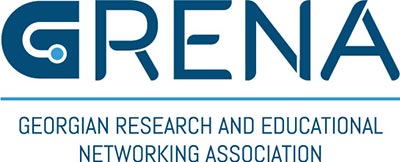The first workshop of the European Commission ERASMUS+ Programme Micro-credentials for Higher Education systems of Georgia and Armenia (Micro-GEAR) took place at the University of Tbilisi, on November 28-29.
The event aimed to serve as a crucial platform to evaluate the current state of micro-credentials and outline a roadmap for their development in the South Caucasus region. The gathering brought together key stakeholders from Georgia, Armenia, and European partners, to align strategic objectives and identify practical steps for advancing Micro-credentials in the South Caucasus. Participants included representatives from 16 institutions across five countries.
The workshop featured presentations, discussions, and roundtables focusing on topics ranging from the current state and challenges of micro-credentials in the region and case studies from EU countries to stakeholder engagement strategies for the development of micro-credentials and short- and long-term roadmaps for implementation.
Presentations highlighted policies and best practices from EU member states, offering insights to help tailor approaches to the specific needs of Georgia and Armenia.
A major outcome of the meeting was the progress made in the alignment of educational programmes with workforce demands through micro-credentials. Ongoing collaboration among stakeholders aims to drive innovation and boost the competitiveness of the region’s education and labour markets. Through focused group discussions, participants identified actionable steps, allocated resources, and defined responsibilities for drafting national roadmaps and white papers.
Ramaz Kvatadze, executive director of GRENA noted: “The workshop gave us a chance to exchange knowledge, understand best practices from Europe, and start building a unified vision for the future of Micro-credentials in the South Caucasus.” (GRENA is one of MicroGEAR’s Georgian partners).
About Micro-GEAR
Micro-GEAR (kick off January 2024) is a three year project that will support structural reforms in the higher education sector of the South Caucasus region, primarily focusing on Georgia and Armenia, with the aim of introducing and facilitating the broad proliferation of micro-credentials as a tool for improving relevance, quality and flexibility of higher education. The project aligns with the European Union Council’s Recommendation on micro-credentials for lifelong learning and employability. It aims to update National Qualifications Frameworks in the two countries, establish consensus on micro-credentialing principles, promote educational activities for micro-credentials, and facilitate mutual recognition. The project has brought together 16 institutions from five countries: Armenia, Georgia, Germany, Italy, and Spain. Micro-GEAR is coordinated by the Georgian Technical University.



